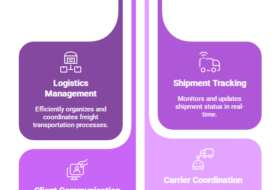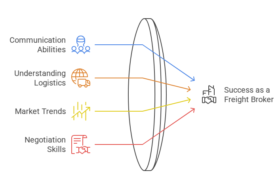Delivery services and best practices are essential elements of a successful box truck business. Providing efficient and reliable delivery services not only satisfies customers but also enhances the overall reputation and profitability of the business. In this article, we will explore the key aspects of delivery services in the box truck business and discuss best practices to ensure excellence in every step of the delivery process.
Efficient Delivery Services
Timely Deliveries: Delivering goods on time is crucial for customer satisfaction. Implement efficient route planning and real-time tracking to ensure punctuality.
Safe Handling: Train drivers to handle cargo safely, using proper loading and unloading techniques to avoid damage during transit.
Order Accuracy: Double-check orders to ensure accuracy before loading them onto box trucks. Minimize errors to prevent returns and re-deliveries.
Effective Communication: Maintain clear and open communication with customers regarding delivery schedules and any potential delays.
Real-Time Updates: Provide customers with real-time delivery updates and estimated arrival times to manage expectations and avoid frustration.
Customer Support: Offer responsive customer support to address inquiries and resolve issues promptly.
Best Practices in Box Truck Delivery
Pre-Trip Inspection: Conduct pre-trip inspections of box trucks to ensure they are in optimal condition before embarking on deliveries.
Driver Training: Provide comprehensive training to drivers, covering safety protocols, customer service, and best practices for efficient delivery.
Efficient Loading: Organize cargo in the box truck efficiently, placing heavier items on the bottom and securing them properly to prevent shifting during transit.
Route Optimization: Utilize route optimization software to plan the most efficient and cost-effective delivery routes.
Adapt to Weather Conditions: Train drivers to adapt to adverse weather conditions, taking necessary precautions for safe driving.
Stay Updated: Regularly update customers on any changes in delivery schedules due to unexpected circumstances.
Delivery Confirmation: Implement a system for obtaining delivery confirmations from customers, ensuring successful receipt of goods.
Handling Returns: Establish a clear and straightforward process for handling product returns or exchanges.
Post-Delivery Follow-Up: Follow up with customers after delivery to ensure their satisfaction and address any concerns.
Environmental Responsibility: Emphasize environmental responsibility by promoting eco-friendly packaging options and adopting sustainable delivery practices.
Conclusion
Delivery services and best practices are integral to the success of a box truck business. By focusing on efficient and timely deliveries, providing excellent customer support, and implementing best practices in every aspect of the delivery process, businesses can build a reputation for reliability and professionalism. Regular training, route optimization, and staying adaptable to changing circumstances are key to consistently exceeding customer expectations and achieving long-term growth in the competitive transportation industry. By prioritizing customer satisfaction and adhering to best practices, a box truck business can establish itself as a preferred choice for reliable and efficient delivery services.








